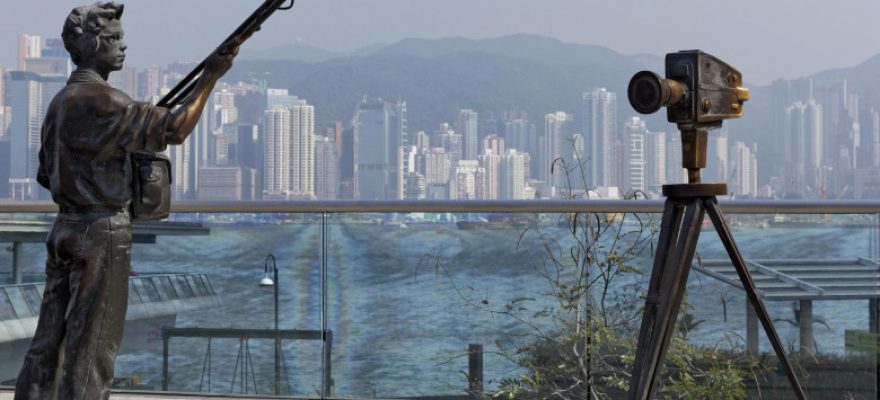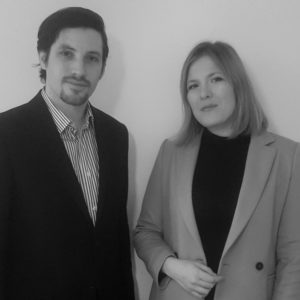

Sébastien Lachaussée & Elisa Martin-Winkel
HOW TO ORGANIZE THE PROVISION OF A FILMING LOCATION?
In feature films and audiovisual films, as in series or advertisements, actors perform in a very wide variety of places: houses, streets, parks but also town hall, police station, judicial courts, hospitals, train station, airport, laboratory, etc.
In this context, it is necessary to organize and contract for the presence of the technical crew at the filming location and in the surroundings, depending on the specificities of the location and the project.
I- Public area
When organizing a filming in public spaces, difficulties arise in terms of parking, traffic etc. and therefore it is required to solicit and obtain corresponding authorizations from the Town Hall and/or the Prefecture of Police.
This can also apply for the services falling under the scope of the Town Hall’s competence such as gymnasium, schools, libraries, swimming pools etc.
Accordingly, it is advisable to contact the press and communication services of the Town Halls, which will direct you to the specific service, if it exists, or will directly indicate the relevant process.
As an example, the office in charge of hosting filming in Paris is Paris Film. This service deals with both filming declarations and filming authorizations.
- Filming declarations
Prior declarations are free and concern only filming with a crew of less than 10 people with light equipment and without any request for parking or traffic intervention.
The deadline for submitting the request is one week prior filming and any request made at a later time may be rejected.
Prior declarations apply exclusively for filming on streets and/or bridges located in the municipality of Paris, to the exclusion of any other site.
Accordingly, filming declarations are not fit for a filming taking place in parks and gardens, on the riverbanks, on the Parisian canals, on the Seine or inside Parisian monuments and buildings.
Also, for any other case, it will be necessary to request a filming authorization.
- Filming authorization
Authorizations are provided for filming with a crew of more than 10 people, in public areas but also in locations and places managed by the City of Paris: parks and gardens, libraries, churches, elementary schools, etc.
The authorization request also allows soliciting parking spaces for technical vehicles, an intermittent cut-off or neutralization of traffic in a street, removal of urban furniture, etc.
Authorization must also cover filming of a stunt or scenes with police uniforms and cars, false weapons etc.
As part of the authorization request, additional documents may be required.
For example, in the event of a request for interrupt and deviate bus lanes, it is necessary to attach an authorization from the RATP (Parisian bus service).
The authorization request is made via the dedicated site, at the latest 2 weeks before the shooting.
It should be noted that the filming in specific locations and the parking of technical vehicles are subject to the payment of a fee.
Once the authorization is obtained, the producer and crew must observe the roads and environmental requirements
II- Administrations, public institutions and establishments open to the public
Beside the public area, managed by town halls and prefectures, it may be necessary to contact the people in charge of the management of public administrations and establishments or of establishment open to the public.
As examples:
- Communication pole of the Directorate of Judicial Services of the French Ministry of Justice manages filming in the courts, while filming in prison falls under the responsibility of the prison administration.
- SNCF (French trains) and RATP (Parisian public transport) have dedicated departments
- It is possible to contact the French National Monuments Center (centre des monuments nationaux) which manages more than 200 monuments closed or open to the public and own by the State: castles, cathedrals, parks etc.
Each location is managed according to its own rules but in all cases, the production manager must put together a file as complete as possible, including all essential characteristics of the project (title, director, format, budget, etc.) and those of the actual shooting (dates and times, number of technicians, equipment, number of vehicles, etc.) and attach the relevant insurance certificate.
It is generally requested to join an accurate description of the scenes to take place in the location concerned and extracts from the screenplay and a synopsis, or even the complete screenplay.
Following the examination of the request, a filming agreement is drawn up or an authorization is granted, together with general conditions.
It is essential to pay close attention to the content of these documents and to the need to negotiate their terms in view of the specific needs of a project.
If fees generally result from applicable schedules and are difficult to negotiate, it is important to consider the conditions for an eventual postponement of the filming dates or for a cancellation of the filming, the obligations imposed on the crew during the shooting (especially in places such as prison, hospitals, courts etc. these rules can be very restrictive and strongly influence the organization of the filming) etc.
III- Private locations
Beyond public places, a shoot can take place in private locations: apartments, houses, parks, etc. but also within dedicated studios.
It is therefore imperative to negotiate with the owner of the premises the conditions of making the property available for production or to negotiate the conditions of access to a studio.
It is then a matter of establishing an agreement for the provision of the location detailing, in particular, as the case may be:
- Dates and time of the filming
- Conditions for modification extension of filming periods
- Areas made available to the technic and artistic crew (toilets, dressing rooms for actors, garage, parking etc.)
- Any services included (security services, help with unpacking / repacking, catering, etc.)
- Applicable fees and fees for water/electricity, the case may be,
- Implementation of check-in/check-out inventory
- Conditions and responsibility of moving the furnitures,
- possibility of making constructions, modifications and any works in the premises and the conditions for returning the premises etc.
It should be noted that if the presence of the crew in the vicinity of a private location causes a significant presence on the public area (parking of vehicles, presence of equipment), it will also be necessary to request authorization from the town hall in this regard.
In any situation, to draft or negotiate the relevant agreement for the provision of a filming location, it is wise to seek advice from a specialized lawyer in order to study the applicable practices for each situation and to guarantee protection of both your interests and those of the project.
SHARE THIS ARTICLE
CONTACT
OUR OFFICES
INFORMATION
sl@avocatl.com
PHONE
+33.1.83.92.11.67
Address
11 rue Sédillot
75007 Paris
Follow us :
Newsletter
Please enter your e-mail :
